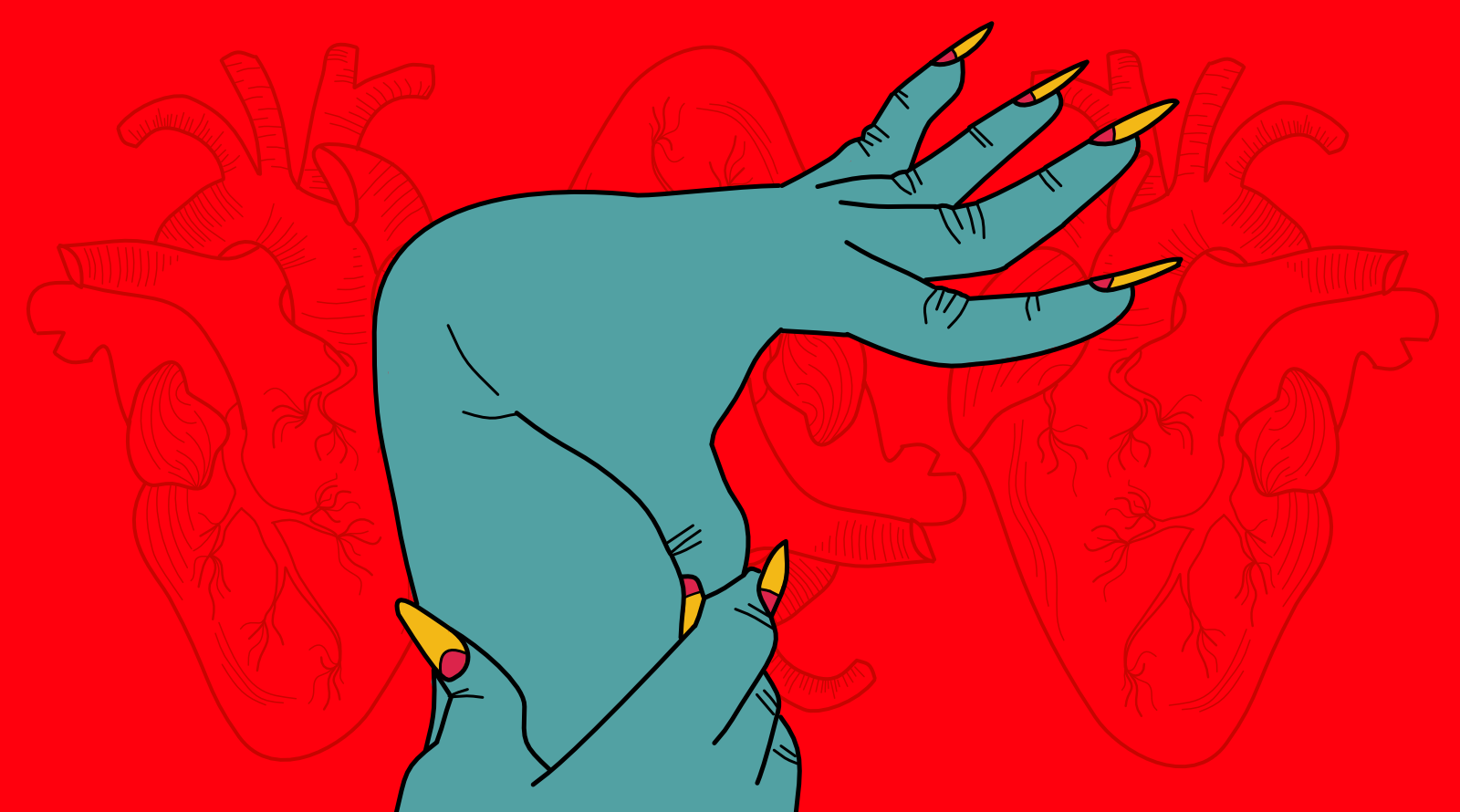The first symptoms of POTS (Postural Orthostatic Tachycardia Syndrome) I remember having were when I was riding the bus to school. It was packed, I was standing up, and suddenly I felt nauseous. Then I appeared in a seat, like I was teletransported! Turns out I passed out. On the other hand, the first sign of EDS (Ehlers Danlos Syndrome) I had was being more flexible than my peers in gymnastics. Even though flexibility does not always equal hypermobility, it can be related. My articulations constantly hurt and cracked on their own, especially my knees and wrists, but it wasn't until approximately a year ago that my symptoms started to get a lot worse. Suddenly I was always exhausted, couldn't do basic chores, and got dizzy all the time. I started to investigate and seek a diagnosis, because I knew something was really off about my body.
I wanna clarify that I'm not a doctor, and even if I was, there are a lot of studies about POTS and EDS that are yet to be done. I'm an autistic disabled person who's especially interested in neurodivergency and its comorbidities and co-occurring conditions, such as chronic illnesses. I try to investigate a lot and hear the experiences and stories of other disabled people to learn from them, which I think is very important. There's a lot of malpractice and gaslighting in the medical area directed at disabled people, especially those who find out later in life about their own conditions. This is often because most doctors we go to aren't specialized in conditions like POTS and EDS, so we have to advocate for ourselves to get answers and treatment.
I try to investigate a lot and hear the experiences and stories of other disabled people to learn from them, which I think is very important.
There was a time I thought I had chronic fatigue, but turns out I was in a deep trauma and autistic burnout while also unknowingly having POTS. I went to different doctors and was told that it was POTS/dysautonomia. A few months ago I went to a specialist that also diagnosed me with EDS and confirmed my POTS.
There's not much information on stimulants and POTS, but many people who have this condition have been prescribed stimulants off label, to help with some of the symptoms. I'm one myself. Approximately a month ago I went to the neurologist and was prescribed a stimulant to both help with my ADHD and my POTS. The first day I took them I felt amazing, I had an amount of energy I haven't felt in years. I was productive and could do the chores I hadn't been able to do in months.
As the days passed by, the effect was less strong – but I still felt a lot better than I did before I started taking them. I can go out and get things done, I don't have as many pre-syncopes as I had before, and can stand for longer periods of time. I don't like that it affects my appetite, so it's harder to eat. This can be a problem because even if I feel better, it won't last if I don't eat properly. Another symptom that manifested recently is anhedonia. At first I didn't connect it to the stimulants, but after reading an article, hearing experiences from other people, and asking friends who also take them, I learned that it is a common side effect with stimulants.
I'm not gonna lie, when I realised it was the stimulants making me anhedonic, I felt miserable – like there was no way out, like I had to choose between my physical and mental health. But then I thought about other options. When my neurologist prescribed them he told me that I should take them when I needed to get things done and not necessarily every day, but because I had many things to do I took it for a week in a row, and that's when I started experiencing anhedonia. I decided to take my neurologist's advice and not take them every day. The only problem is that when I don't take them my POTS symptoms get worse, but this way I can find some balance between the mental and physical matters.
When I realised it was the stimulants making me anhedonic, I felt miserable – like there was no way out, like I had to choose between my physical and mental health.
Most of the time specialists don't explain much on how medications work or what you shouldn't take with them. There are studies that show that Vitamin C can lessen the effects of stimulants on the body, and antipsychotics can have opposing effects to stimulants. I was taking antipsychotics for a long time, but I had to stop them when I started taking stimulants. Sometimes deciding between treating some symptoms over others can be very hard, and it's important to look for a specialist who can work with you to find the right balance. I haven't been able to find the exact cocktail of medication, because there's so many medications you can't take while you're on stimulants. In Chile, good psychiatrists are mostly economically hard to access, and the public system is very slow.
Anecdotally, it's well known that there's a link between neurodivergency and chronic illnesses, though there are not yet many studies about it. I see it every day in my close ones and also in myself. Most of the autistic people I know also have POTS, EDS, or other syndromes. I also believe that these types of chronic illnesses are linked to the complex trauma that comes with being neurodivergent in a society that is not made for us. There are studies that show how trauma can have a long term impact on physical health, but as I said before, these studies are just recently being made, so there's not much information about this correlation.
I feel that regulating our nervous system can always help with symptoms, even if it doesn't resolve physical symptoms, but only psychological ones. Having trauma and also chronic illnesses can be really hard to manage. I've been attending EMDR therapy for almost two years now, and though my physical health isn't better, not having as many trauma triggers helps a lot. I may be tired because of my POTS and EDS, but I'm not having shutdowns and meltdowns as well. As much as it makes my symptoms worse, having both issues can be really exhausting.
Having trauma and also chronic illnesses can be really hard to manage.
For people who are just finding out they have these conditions I would say: don't give up when something doesn't work. There are many ways of managing symptoms and each person will need a different plan. I know being chronically ill can feel like a curse and make you wonder what you did to deserve this, but in reality it's not that you did anything wrong. There's lots of us out there, trying to get better, willing to give you support, and to share our experiences to help you feel less alone. I know how hard the medical system can be, with the gaslighting and lack of information that some doctors have. That's why it’s important to rely on your close ones, seek community with other disabled people, and to advocate for yourself. We all deserve a good quality of life and all the help we can get.
The information in this article/on this website is for general information only. It should not be taken as constituting professional advice from the website owner - Tryst. Tryst does not provide medical advice and the information on this site is not intended as a substitute for professional medical advice. Please seek the advice of a qualified medical professional provider regarding any medical questions or concerns you have. Tryst is not liable for any issues caused, whether due to negligence or otherwise arising from the use of, or reliance on, the information provided directly or indirectly, by use of this website or article.
Are you a sex worker with a story, opinion, news, or tips to share? We'd love to hear from you!
We started the tryst.link sex worker blog to help amplify those who aren't handed the mic and bring attention to the issues ya'll care about the most. Got a tale to tell? 👇☂️✨





